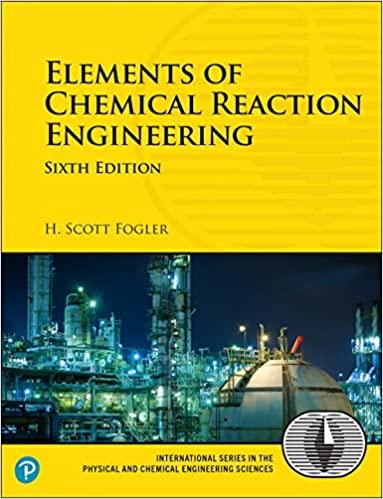Hydrogen radicals are important to sustaining combustion reactions. Consequently, if chemical compounds that can scavenge the hydrogen
Question:
Hydrogen radicals are important to sustaining combustion reactions. Consequently, if chemical compounds that can scavenge the hydrogen
radicals are introduced, the flames can be extinguished. While many reactions occur during the combustion process, we shall choose CO flames as a model system to illustrate the process (S. Senkan et al., Combustion and Flame, 69, 113). In the absence of inhibitors
The last two reactions are rapid compared to the first two. When HCl is introduced to the flame as a retardant with forward and reverse specific rate constants k5 and k6, the following additional reactions occur:![]()
Assume that all reactions are elementary and that the PSSH holds for the O·, OH·, and Cl· radicals.
a. Derive a rate law for the consumption of CO when no retardant is present.
b. Derive an equation for the concentration of H· as a function of time, assuming constant concentration of O2, CO, and H2O for both uninhibited combustion and combustion with HCl present. Sketch H· versus time for both cases.
c. Use Polymath to find out what happens when k1 = 0.0001, k4 = 0.02, k5 = 0.05, and k6 = 0.005 appropriate units. Write one sentence conclusion.
Step by Step Answer:






